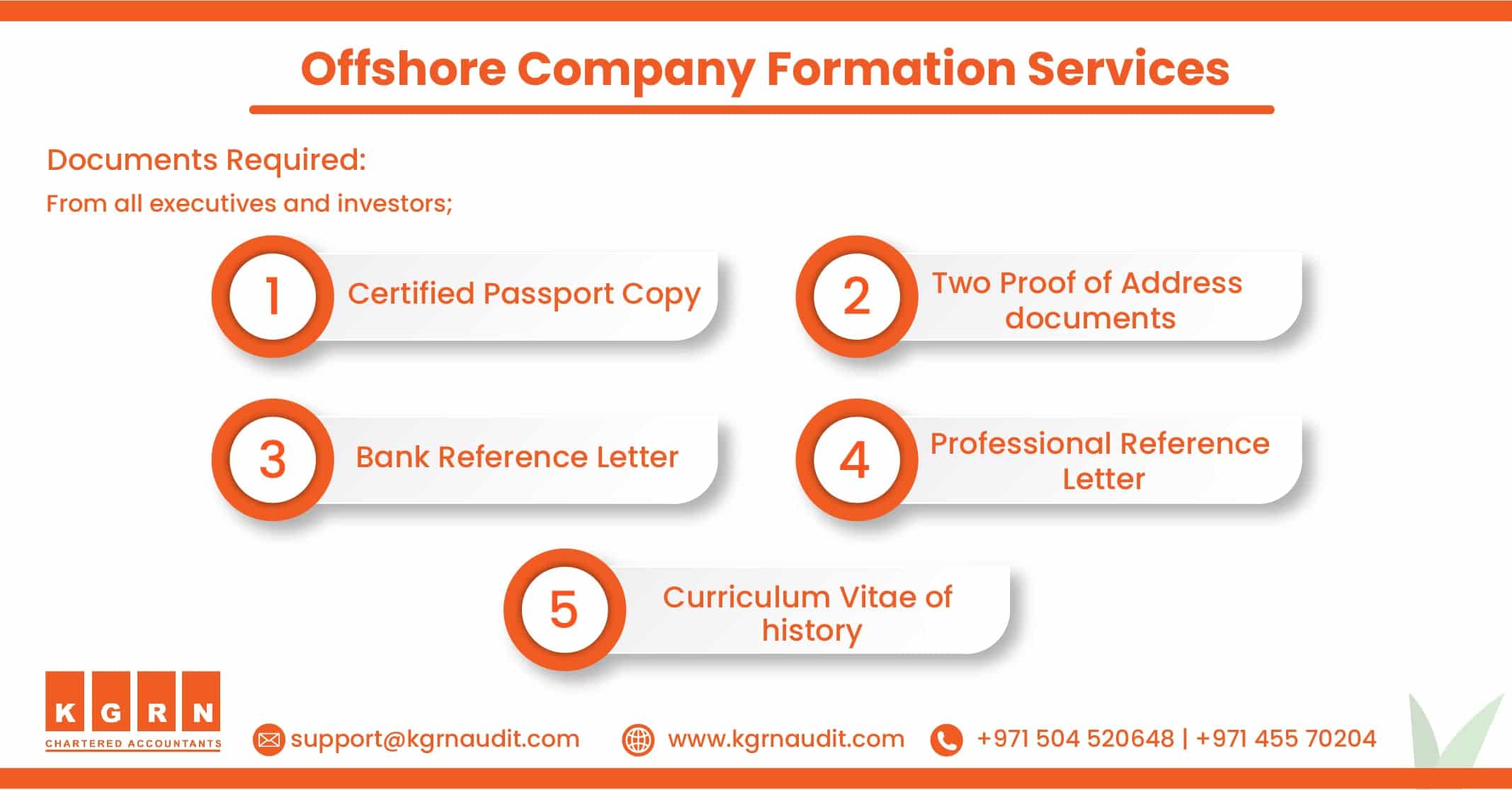Offshore Company Formation with Financial Setup
Wiki Article
Navigating the World of International Company: Insights on Offshore Company Formation
Offshore Company Formation presents a tactical method for global service procedures. It supplies notable advantages, such as tax obligation optimization and improved personal privacy. The procedure is not without its difficulties. Understanding the complexities of governing needs and various territories is vital. As companies take into consideration these choices, the steps entailed can substantially affect their long-lasting success. What are the crucial variables that can cause reliable overseas administration?Comprehending Offshore Business: Meaning and Objective
Offshore firms have actually ended up being a prime focus in international organization conversations due to their unique legal and monetary structures. These entities are established in jurisdictions outside of the proprietor's country of home, usually with beneficial regulatory environments. Usually, overseas business offer different purposes, such as possession protection, tax optimization, and improved personal privacy. They can operate in several sectors consisting of money, trade, and innovation, providing flexibility for worldwide operations.The specifying quality of an overseas Company is its capacity to perform service worldwide while benefiting from minimized tax obligation responsibilities and governing concerns. This structure appeals to financiers and business owners looking for to diversify their portfolios and handle risks properly. Additionally, lots of overseas territories use motivations to attract foreign financial investment, causing a boost in the Formation of these business. Recognizing the meaning and function of overseas companies is crucial for steering with the complexities of international business and funding flow.Secret Benefits of Offshore Company Formation
The Formation of an overseas Company uses a number of engaging advantages that attract business owners and investors alike. Among the primary advantages is tax obligation optimization; many jurisdictions give favorable tax obligation rates or exemptions, permitting services to take full advantage of revenues. In addition, overseas business frequently take pleasure in better privacy, as many jurisdictions have rigorous privacy legislations shielding the identities of Company owners and shareholders.Another considerable benefit is possession defense. Offshore entities can safeguard possessions from political instability and financial slumps in the owner's home nation. These firms can assist in worldwide trade, giving very easy accessibility to worldwide markets and streamlining cross-border transactions.The versatility in business structure likewise charms to company owners, as offshore business can be tailored to satisfy particular functional needs. In general, the critical Formation of an offshore Company can result in improved financial safety and security, operational efficiency, and a robust global visibility.
Typical Obstacles in Developing Offshore Entities
Establishing overseas entities offers numerous obstacles that organizations need to navigate. Trick issues include regulatory compliance, which can vary substantially across territories, and the effect of social differences on operations. In addition, organizations should consider the expenses and risks connected with preserving an overseas existence, which can influence overall viability.Governing Conformity Issues
Steering regulative conformity problems poses significant obstacles for companies when they seek to establish overseas entities. Each territory has its very own collection of legislations and guidelines, which can vary widely and may be difficult to navigate. Companies typically face challenges pertaining to tax compliance, anti-money laundering guidelines, and reporting needs. In addition, changes in international tax regulations can develop unpredictability, making it crucial for companies to remain updated on conformity responsibilities. Failure to stick to these policies can cause severe charges, including fines and reputational damage. Subsequently, recognizing the lawful structure and engaging with local specialists is essential for effective offshore procedures, ensuring that companies can run within the confines of the legislation while optimizing their international technique.Social Differences Impact

Price Considerations and Dangers
Guiding via the monetary landscape of offshore entity Formation provides numerous cost factors to consider and fundamental dangers. Initial setup costs usually include legal costs, registration costs, and compliance charges, which can collect substantially. Additionally, recurring upkeep expenditures such as yearly costs and bookkeeping services need to be factored in. Varying regulatory environments in different territories posture risks, possibly leading to lawful complications or unanticipated prices. Organizations may also encounter obstacles associated with taxation, financial, and reputational issues, which can impact profitability and functional efficiency. Consequently, possible business owners have to carry out complete due diligence and financial projecting to alleviate these dangers and assure lasting growth. Comprehending these expense considerations is vital for effective overseas business endeavors.Steps to Establish Up an Offshore Company
Developing an offshore Company entails a number of essential steps that need mindful consideration. Key variables consist of ensuring and choosing the appropriate jurisdiction compliance with neighborhood guidelines, along with collecting necessary paperwork. Understanding these aspects is necessary for an effective offshore service arrangement.Picking the Right Jurisdiction
Choosing the right territory is vital for any individual seeking to establish an overseas Company, as it can significantly influence business's legal obligations, tax obligation liabilities, and operational simplicity. Various elements must be thought about, consisting of the political stability, regulatory atmosphere, and tax rewards provided by potential territories. Popular choices typically consist of nations with favorable tax regimens, such as the British Virgin Islands or Cayman Islands, due to their reduced or no tax obligation rates. In addition, the ease of operating and the credibility of the jurisdiction can influence capitalist confidence and market accessibility. Inevitably, a knowledgeable choice based on thorough research study will certainly guarantee the offshore Company is positioned for long-lasting success and conformity with global requirements.Required Documentation and Compliance
When click here setting up an overseas Company, comprehending the needed documents and compliance requirements is necessary to guarantee a smooth process. Trick documents commonly include a certification of unification, a memorandum and write-ups of association, and evidence of identification for supervisors and shareholders. Some jurisdictions may require additional info, such as company plans or financial institution references. Compliance with local regulations is important, which often entails selecting a signed up representative and maintaining an authorized office. Regular coverage and adherence to tax obligations must also be thought about. Failing to conform with these demands can result in fines or perhaps dissolution of the Company. Comprehensive preparation and appointment with lawful specialists can assist browse these complexities efficiently.Selecting the Right Jurisdiction for Your Offshore Company
Exactly how can one figure out the most suitable territory for an offshore Company? Picking the appropriate jurisdiction calls for mindful consideration of multiple factors. The legal and tax setting plays an important role; jurisdictions with desirable tax regimes might boost business productivity. In addition, the political stability and economic climate of an area can impact long-lasting organization viability.Another crucial aspect is the schedule of monetary solutions and financial facilities, which assist in smooth procedures. Potential local business owner need to also consider the ease of operating, consisting of the rate of enrollment and the clearness of regulations.Furthermore, language barriers and cultural distinctions can affect operations; therefore, straightening with a territory that aligns with organization goals and personal comfort is vital. Eventually, detailed study and specialist guidance can lead entrepreneurs in making a notified decision that lines up with their strategic objectives.Conformity and Regulative Factors To Consider

Ideal Practices for Managing an Offshore Business
Taking care of an overseas organization calls for calculated preparation and meticulous implementation to maximize performance and reduce risks. First, developing a durable conformity structure is important to navigate differing regulations across territories. Regular audits and danger assessments help determine potential vulnerabilities.Moreover, leveraging neighborhood competence through partnerships with neighborhood professionals can boost operational efficiency and social understanding. Using modern technology, such as cloud-based management systems, improves communication and information monitoring, allowing better decision-making. Furthermore, preserving transparent monetary documents and ensuring prompt tax obligation filings are essential to maintain the Company's stability. Buying staff training and growth cultivates a knowledgeable labor force, advertising technology and adaptability.Finally, establishing clear performance metrics and essential performance signs (KPIs) helps analyze service development and inform critical modifications. By sticking to these best practices, business can effectively manage their overseas operations, ensuring long-term success and sustainability in a competitive international market.Regularly Asked Concerns
What Is the Price of Forming an Offshore Company?
The cost of developing an overseas Company differs extensively depending on jurisdiction, legal requirements, and services needed. Generally, expenses can vary from a couple of hundred to several thousand dollars, consisting of registration, compliance, and annual fees.The length of time Does It Require To Establish an Offshore Entity?
The time needed to develop an offshore entity varies significantly, generally varying from a couple of days to numerous weeks (offshore company formation). Aspects influencing this period consist of territory, required paperwork, and the efficiency of the service copyright entailedCan People Form Offshore Companies Without a Service Companion?
Individuals can indeed create overseas companies without an organization companion. Numerous territories enable single-member entities, equipping entrepreneurs to develop and handle their businesses independently, while still gaining from potential tax obligation advantages and lawful protections.Exist Any Kind Of Tax Advantages for Foreign Investors?

What Kind Of Services Commonly Utilize Offshore Firms?
Offshore companies are regularly utilized by different fields, including financing, shopping, and modern technology. These entities typically offer purposes such as property protection, tax obligation optimization, and privacy, appealing to both multinational companies and private business owners. Offshore business have actually come to be a focal factor in global business discussions due to their unique legal and monetary structures. They can operate in multiple markets including money, technology, and trade, supplying versatility for international operations.The specifying quality of an offshore Company is its ability to conduct organization globally while benefiting from minimized tax obligation obligations and regulatory worries. Additionally, overseas companies typically enjoy better privacy, as lots of jurisdictions have rigorous privacy laws protecting the identifications of Company proprietors and shareholders.Another substantial advantage is asset security. These companies can assist in global trade, giving simple accessibility to global markets and streamlining cross-border transactions.The adaptability in company structure additionally appeals to service owners, as offshore firms can be customized to meet specific operational needs. Choosing the ideal territory is crucial for any person looking to establish up an offshore Company, as it can greatly affect the organization's legal obligations, tax responsibilities, and operational ease.Report this wiki page